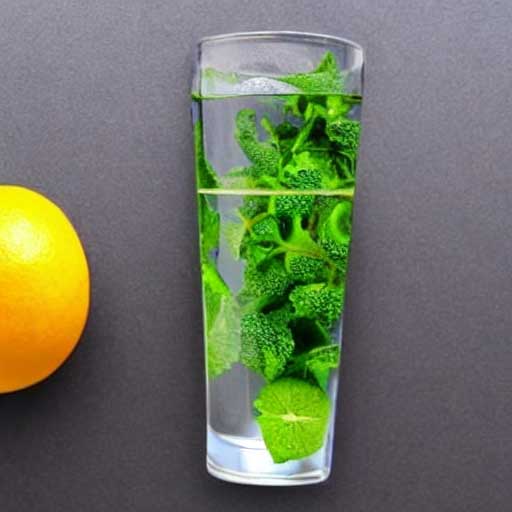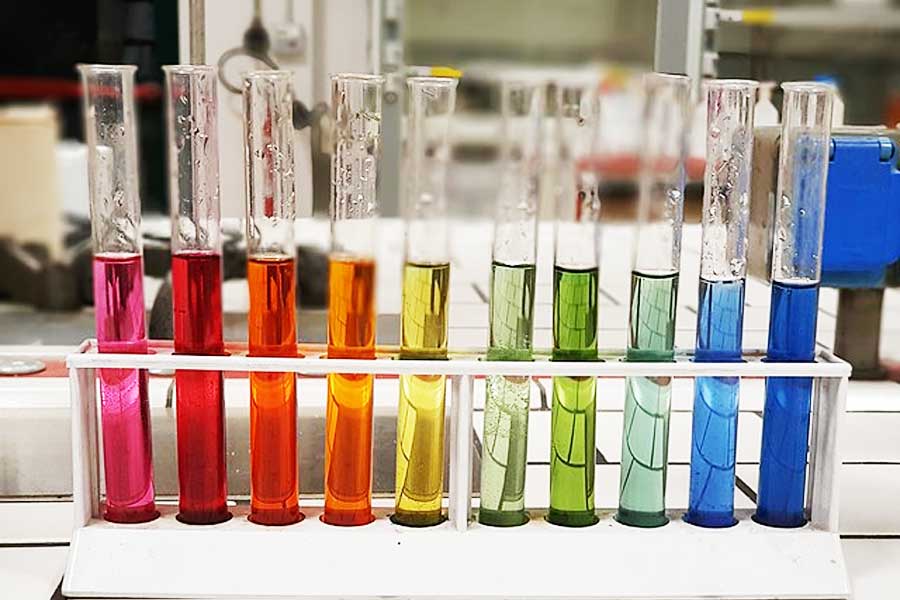
Alkalinity versus pH
Alkalinity and pH are related concepts, but they are not the same thing.
pH is a measure of the acidity or basicity of a solution and is based on the concentration of hydrogen ions (H+) in the solution. The pH scale ranges from 0 to 14, with a pH of 7 being neutral (neither acidic nor basic), a pH below 7 being acidic, and a pH above 7 being basic (alkaline).
Alkalinity, on the other hand, is a measure of the buffering capacity of a solution, or its ability to resist changes in pH. It is based on the concentration of carbonate, bicarbonate, and hydroxide ions in the solution. Alkalinity is usually expressed in terms of its equivalent concentration of calcium carbonate (CaCO3) in units of mg/L or parts per million (ppm).
NOTE! A solution can have a high pH but low alkalinity, or vice versa. A high pH indicates that the solution is basic, while high alkalinity indicates that the solution can resist changes in pH even when an acidic substance is added to it.

Alkaline water is water that has a higher pH level than tap water, typically above 7.0 on the pH scale. This is often achieved through a process called ionization, which removes acidic compounds and adds minerals such as calcium, potassium, and magnesium.
Non-alkaline water with low pH, on the other hand, has a lower pH level than tap water, typically below 7.0 on the pH scale. This can be due to the presence of acidic compounds such as carbon dioxide or organic acids.
The growing popularity of alkaline water and claims of its health benefits
Alkaline water has become increasingly popular in recent years, with some proponents claiming that it can provide numerous health benefits. Some of the claims made about alkaline water include that it can neutralize acid in the body, help with detoxification, boost metabolism, improve digestion, and even prevent certain diseases.
However, the scientific evidence to support these claims is limited. While some studies have suggested that alkaline water may have a positive effect on acid-base balance in the body, the evidence is not strong enough to make definitive conclusions. There is also little evidence to support claims that alkaline water can prevent or cure diseases such as cancer.
It is important to note that the human body has natural mechanisms for regulating its pH levels, and consuming alkaline water may not necessarily provide any significant health benefits beyond those of regular water. In fact, consuming excessive amounts of alkaline water can lead to alkalosis, a condition in which the body’s pH becomes too alkaline and can cause symptoms such as nausea, vomiting, and muscle twitches.
Overall, while some people may find that drinking alkaline water improves their health, the scientific evidence is currently limited and more research is needed to fully understand its potential health benefits and risks.
Advocates of alkaline water often make a variety of claims about its potential health benefits. Some of the most common claims include:
-
Helps neutralize acid in the body: Some people believe that consuming alkaline water can help to neutralize acid in the body and reduce the risk of acid-related diseases such as osteoporosis, kidney stones, and acid reflux.
-
Boosts metabolism: It is claimed that alkaline water can help to increase the body’s metabolism, leading to weight loss and improved overall health.
-
Enhances hydration: Some people believe that alkaline water is better able to hydrate the body than regular water, due to its higher pH level and mineral content.
-
Improves digestion: It is claimed that alkaline water can help to improve digestion and reduce the symptoms of digestive disorders such as bloating, constipation, and acid reflux.
-
Boosts immune function: It is suggested that alkaline water can help to strengthen the immune system and improve overall health, reducing the risk of infections and other illnesses.
- How important is to drink alkaline water? Secrets of use.
Here are some reasons why some people may choose not to drink alkaline water:
-
Interaction with medications: Alkaline water may interact with certain medications, especially those that are designed to reduce stomach acid. If you take any medication, you should consult with your doctor or pharmacist before consuming alkaline water.
-
Alkalosis: Drinking excessive amounts of alkaline water can lead to a condition called alkalosis, in which the body’s pH becomes too alkaline. This can cause symptoms such as nausea, vomiting, muscle twitching, and confusion.
-
Interference with digestion: Some experts have raised concerns that drinking highly alkaline water may interfere with the natural acidity of the stomach, leading to digestive issues such as bloating, gas, and constipation.
-
Lack of proven health benefits: While many advocates of alkaline water claim that it provides a variety of health benefits, there is limited scientific evidence to support these claims. Drinking alkaline water may not provide any significant health benefits beyond those of regular water.
In conclusion.
It is important to make an informed decision about water intake based on one’s own health needs and preferences. While some people may find that drinking alkaline water improves their health, the scientific evidence for its health benefits is limited. Non-alkaline water with low pH, on the other hand, is generally safe for most people to drink, but may have a sour taste that some people find difficult to drink.
It is always a good idea to consult with a doctor or pharmacist before making any major changes to your diet or drinking habits, especially if you take any medications. You should also consider your personal taste preferences and any concerns you may have about the environmental impact of the water you drink.
Ultimately, the decision about whether to drink alkaline water or non-alkaline water with low pH should be based on your own individual needs and preferences. It is important to stay hydrated by drinking plenty of water, but the health benefits of high pH water are not well-established by scientific evidence, and non-alkaline water with low pH is generally safe and palatable for most people.


Filtration Systems By Contaminants
Ultramax 860 Water Softener
Parts
Amtrol RO Tank 4.4 Gal Steel 141S351 / 141S352 White / Blue
UV and Ozone Water Purification
Ozone Generator JED 503 (120V, 240V, 12V)
Home & Office Water Coolers
Vertex PureChill-901: 3-Temp cooler in a Small Package
UV and Ozone Water Purification
Ozone Generator JED 103 (120V, 240V, 12V)